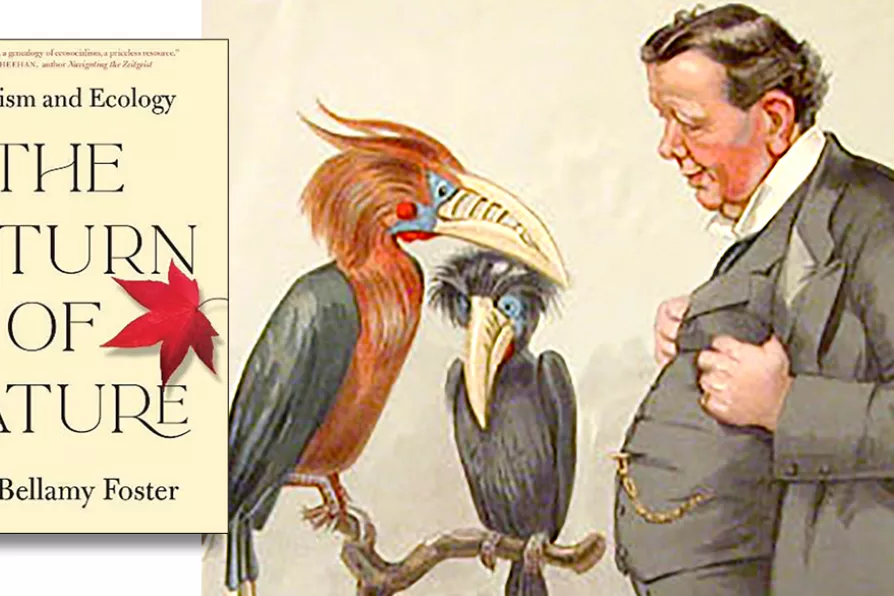RITA DI SANTO draws attention to a new film that features Ken Loach and Jeremy Corbyn, and their personal experience of media misrepresentation

 EARLY WARNINGS: (Right) caricature of Edwin Ray Lankester by Leslie ‘Spy’ Ward in Vanity Fair 1905
EARLY WARNINGS: (Right) caricature of Edwin Ray Lankester by Leslie ‘Spy’ Ward in Vanity Fair 1905
The Return of Nature: Socialism and Ecology
by John Bellamy Foster
(Monthly Review Press, £30)
TWENTY years ago, Marx’s Ecology by John Bellamy Foster mined Marx’s writings for what he calls his “ecological materialism,” rehabilitating him as a major ecological thinker. Marx pointed out how capitalism disrupts the interactions between humans and the earth, creating what Foster calls a “metabolic rift,” leading to pollution and environmental degradation.
The central concern of his new book, which traces the work of scientist-philosophers whose ideas anticipated the modern ecological movement from Marx’s day to the 1970s, explores the evolution of ecological science simultaneously with the development of dialectical materialism.
This philosophy is not a dogma but, in the words of JD Bernal, it is a method of discovery — “an approach which sees interconnections between and within the human and the natural world, all elements constantly acting on and reacting to each other in the process of which they are transformed.” As JBS Haldane had it, the natural world consists of “processes, not things.”

JOHN GREEN’s palate is tickled by useful information leavened by amusing and unusual anecdotes, incidental gossip and scare stories












